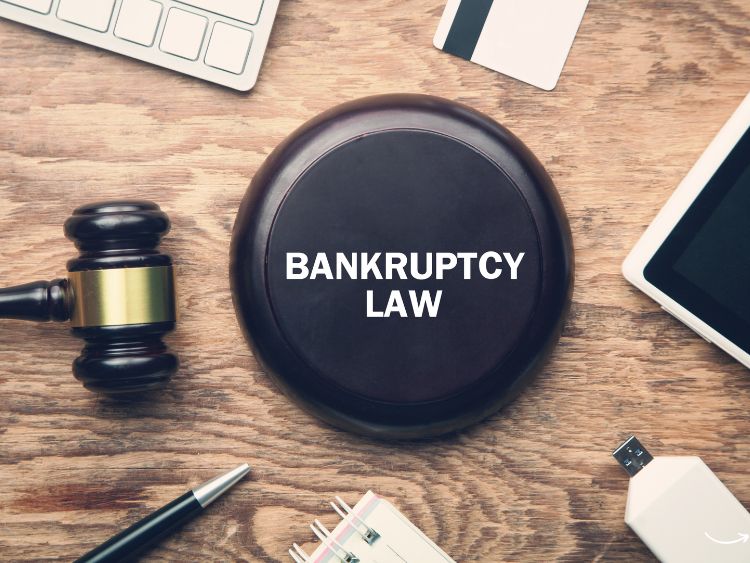Finding yourself buried under a mountain of debt can be an overwhelming and stressful experience. The constant calls from creditors, the mounting bills, and the looming threat of losing your assets can feel like a never-ending nightmare. For many, filing for bankruptcy may be the only viable option to regain financial stability. However, the cost of hiring a bankruptcy attorney can be a significant barrier. This article aims to guide you through finding an affordable bankruptcy attorney, ensuring you get the legal assistance you need without breaking the bank.
Why You Need a Bankruptcy Attorney
Bankruptcy law is complex, and navigating it without professional help can lead to costly mistakes. A bankruptcy attorney can provide invaluable assistance by:
- Assessing your financial situation and advising on the best type of bankruptcy to file.
- Helping you gather and prepare the necessary documentation.
- Representing you in court and negotiating with creditors.
- Ensuring you comply with all legal requirements and deadlines.
What Makes an Attorney Affordable?
Affordability doesn’t just mean low fees. It encompasses the overall value you receive for the price you pay. An affordable bankruptcy attorney should offer:
- Transparent Pricing: Clear and upfront fee structures without hidden costs.
- Payment Plans: Flexible payment options to help you manage the cost.
- Experience: Adequate expertise and a track record of success in bankruptcy cases.
- Accessibility: Easy communication and availability to address your concerns promptly.
How to Find an Affordable Bankruptcy Attorney
1. Research and Referrals
Start by asking friends, family, or colleagues if they can recommend an affordable bankruptcy attorney. Personal referrals can be a great way to find trustworthy and reasonably priced legal help. Additionally, online reviews and ratings on platforms like Avvo, Martindale-Hubbell, and the Better Business Bureau can provide insights into an attorney’s reputation and affordability.
2. Free Consultations
Many bankruptcy attorneys offer free initial consultations. Use this opportunity to discuss your case, ask about their fees, and determine if they are a good fit for your needs. During the consultation, be sure to ask:
- What is their fee structure?
- Do they offer payment plans?
- What services are included in their fees?
- How many bankruptcy cases have they handled?
3. Non-Profit Legal Services
Several non-profit organizations offer free or low-cost legal services to individuals struggling with debt. Check with local legal aid societies, bar associations, and community organizations to see if you qualify for assistance.
4. Consider a Law School Clinic
Many law schools have clinics where law students, supervised by experienced attorneys, provide free or low-cost legal services. While these students may not have the same level of experience as seasoned attorneys, they are often eager and dedicated to helping clients navigate their legal issues.
Types of Bankruptcy: Chapter 7 vs. Chapter 13
When considering bankruptcy, it’s essential to understand the two most common types available to individuals: Chapter 7 and Chapter 13.
Chapter 7 Bankruptcy
- Eligibility: To qualify for Chapter 7, you must pass a means test, demonstrating that your income is below a certain threshold.
- Process: Chapter 7 involves liquidating non-exempt assets to pay off creditors. Most unsecured debts, like credit card debt and medical bills, are discharged.
- Timeline: The process typically takes 3-6 months to complete.
Chapter 13 Bankruptcy
- Eligibility: Available to individuals with a regular income who can afford to repay a portion of their debts through a repayment plan.
- Process: Chapter 13 allows you to keep your assets while creating a 3-5 year repayment plan to pay off creditors.
- Timeline: The repayment plan lasts 3-5 years, after which any remaining eligible debts are discharged.
FAQs about Affordable Bankruptcy Attorneys
Q: Can I file for bankruptcy without an attorney?
A: Yes, you can file for bankruptcy pro se (without an attorney), but it is not recommended due to the complexity of bankruptcy laws and the potential for costly mistakes.
Q: How much does a bankruptcy attorney typically cost?
A: The cost varies depending on the complexity of the case and the attorney’s experience. Chapter 7 bankruptcy can cost between $500 and $3,500, while Chapter 13 bankruptcy may range from $2,500 to $6,000.
Q: Are payment plans available for attorney fees?
A: Many bankruptcy attorneys offer payment plans to make their services more affordable. Be sure to ask about this option during your initial consultation.
Q: Will hiring a cheaper attorney affect my case outcome?
A: Not necessarily. While it’s essential to consider cost, you should also evaluate the attorney’s experience, reputation, and communication skills. Sometimes, a less expensive attorney can provide excellent service.
Q: What if I can’t afford any attorney?
A: If you genuinely cannot afford an attorney, look into non-profit legal services or law school clinics that offer free or low-cost assistance.
Conclusion
Finding an affordable bankruptcy attorney requires some research and effort, but the benefits of having professional legal guidance are well worth it. By considering referrals, utilizing free consultations, exploring non-profit services, and understanding the costs involved, you can secure the legal help you need to navigate your bankruptcy case successfully.
Remember, the goal is to regain financial stability and move forward with a fresh start. Don’t let the cost of an attorney deter you from seeking the help you need. With the right approach, you can find an affordable bankruptcy attorney who will support you every step of the way.
Authoritative Links
- American Bar Association: https://www.americanbar.org
- National Association of Consumer Bankruptcy Attorneys: https://www.nacba.org
- Legal Services Corporation: https://www.lsc.gov
- Avvo: https://www.avvo.com
- Martindale-Hubbell: https://www.martindale.com
